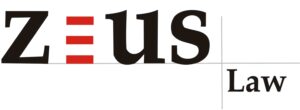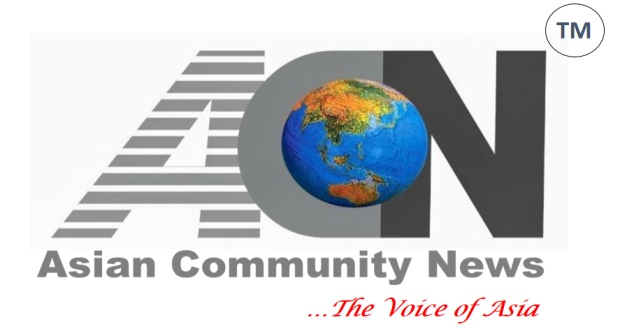Logo infringement: Japan Patent Office (JPO) gets interim relief from Delhi High Court
Many companies in India have allegedly not only blatantly copied the ‘JPO’ mark/logo for their products but also filed for trademark registration of it as ‘JPO PLATINUM’.
NEW DELHI: The High Court of Delhi has barred Indian manufacturers and suppliers from copying and using the logo of Japan Patent Office it adopted in 2011 to celebrate the 125th anniversary of the Industrial Property Rights System in Japan. The JPO moved the court seeking complete check on the illegal usage of its logo by Indian companies. Ironically, the Indian companies not only copied the JPO’ mark/logo for their products in India but also filed for trademark registration as ‘JPO PLATINUM’.
Taking a stern view of the matter since the Intellectual Property Office of Japan has been at the receiving end of the infringement, the Court observed that it’s like committing theft in a police station.
Recently, the Japan Patent Office (“JPO”) filed a commercial suit before the High Court of Delhi wherein its ‘JPO’ logo was sought to be appropriated in India by manufacturers and suppliers of tools, kits, and glass fittings. The Court, considering the seriousness of the issue, granted interim relief to the JPO on the first hearing itself.
JPO, functioning under the Ministry of Economy, Trade and Industry, Japan, is a governmental agency managing the Industrial Property Rights affairs in Japan by providing services to intellectual property owners for registration of patent utility models, designs, and trademarks. It is one of the five largest patent offices in the world. JPO’s relation with India also dates back to 1996, when it has been holding training programs and seminars and has also been coordinating with the Controller General of Patents, Designs, and Trademarks, India (“CGPDTM”) in the field of intellectual property. Hence, JPO enjoys recognition and goodwill within India for the last several years.
FAST FACTS
- In 2011, the Japan Patent Office (JPO) created its new logo to commemorate the 125th Anniversary of the Industrial Property Rights System in Japan.
- The new logo communicates the JPO’s responsibility for industrial property administration in Japan and became part of its public relations efforts in January 2011.
What the logo represents
- Within the new logo can be seen the letters “JPO” in a design that conveys familiarity and trust.
- The letter “j” represents a “person” and stands for the JPO’s philosophy to deliver user-oriented, high-quality service. This “jumping” person shows how the JPO will be tackling various IP-related challenges toward the next generation and making a leap forward for continuous evolution.
- The “blue oval” symbolizes the intellect and the development of a global intellectual property system, and the JPO’s efforts to implement diversified IP measures and policies timely and effectively are implied in this figure. Source: www.jpo.go.jp
JPO stated that it adopted its logo in 2011 to celebrate the 125th anniversary of the Industrial Property Rights System in Japan and the logo holds a significant value for them. The JPO’s case is that the manufacturers and sellers have not only blatantly copied its ‘JPO’ mark/logo for their products in India but have also gone one step ahead and filed for trademark registration of their mark as ‘JPO PLATINUM’. Furthermore, the logo has been copied identically in the same colour combination and is being printed/embossed on the products.
While taking a stern view of the matter since the Intellectual Property Office of Japan has been at the receiving end of the infringement, the Court observed that it’s like committing theft in a police station. The Court stated that looking at the use of an identical colour combination and an identical logo by the Indian entity, it is clear that their JPO’s logo has been illegally adopted. It observed that even though JPO does not have a registered trademark or copyright in its favour, it is fully comprehensible as JPO could never have anticipated that even its logo could be imitated. The Court further held that Japan, being a WTO country and the JPO’s logo being an original artistic work, is entitled to copyright protection and has exclusive rights to use the logo under Section 14 of the Copyrights Act, 1957.
Placing reliance on the decision of the Hon’ble Supreme Court in Laxmikant v. Patel vs. Chetanbhai Shah & Ors., MANU/SC/0763/2001, the Hon’ble Court stated that in a prima facie trademark violation case, an injunction could be granted even at the ex-parte stage. Following the said position, it was held that the balance of convenience lies in favour of JPO, considering that it is a well-reputed patent office in the world, which grants and protects the rights of other Intellectual Property Right owners. Therefore, vide this order of Hon’ble Delhi High Court, the manufacturers and sellers have been restrained from using the impugned JPO mark, JPO logo, word mark ‘JPO PLATINUM’, or any other mark identical or similar to the JPO mark and logo.
 In the field of business, the legal system of a country serves as the backbone for ensuring the enforcement of rights. It provides a structured framework to resolve disputes, safeguard contracts and confirm that commercial and business rights are recognized and complied with. One of the prominent branches of law having an impact on businesses is Intellectual Property Law, which protects intellectual properties including trademarks, patents, copyrights, etc. To ensure that the intellectual property remains protected and is not infringed, the businesses must get their intellectual properties registered under respective laws such as the Trade Marks Act, 1999, Patents Act, 1970, Copyright Act, 1957, etc.
In the field of business, the legal system of a country serves as the backbone for ensuring the enforcement of rights. It provides a structured framework to resolve disputes, safeguard contracts and confirm that commercial and business rights are recognized and complied with. One of the prominent branches of law having an impact on businesses is Intellectual Property Law, which protects intellectual properties including trademarks, patents, copyrights, etc. To ensure that the intellectual property remains protected and is not infringed, the businesses must get their intellectual properties registered under respective laws such as the Trade Marks Act, 1999, Patents Act, 1970, Copyright Act, 1957, etc.
About Authors:
 Ms. Pankhuri Jain is a Partner and Mr. Anmol Chawla is an Associate in ZEUS Law Associates, which is an ISO-certified full-service corporate commercial law firm with a team of dedicated and experienced lawyers well versed in handling domestic and cross-border transactions across sectors, jurisdictions, and regulatory landscapes.
Ms. Pankhuri Jain is a Partner and Mr. Anmol Chawla is an Associate in ZEUS Law Associates, which is an ISO-certified full-service corporate commercial law firm with a team of dedicated and experienced lawyers well versed in handling domestic and cross-border transactions across sectors, jurisdictions, and regulatory landscapes.



